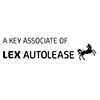The old adage, ‘buy things that appreciate and lease things that depreciate’ is often quoted by those who espouse car leasing as the ‘smart’ way to purchase your next car.
But is this really true? With Porsche dealerships currently quoting customers an interest rate up to 9% APR on their new car finance, why would you waste money on interest when even the most optimistic financial advisor would be unlikely to guarantee you that kind of return on your money?
The truth often lies in a more nuanced approach, rather than broad brush stroke principles.
The truth also lies in how independent your supplier truly is. Does the person advising you have an interest in you choosing one manufacturer or finance style over another? If so, remember another old adage car buyers have long been warned about, caveat emptor.
Often referred to as the ‘dark art’ of the automotive industry, the ability to accurately predict future values on cars to a large degree determines much of the finance package you may be considering. If you are not considering finance, the future value obviously has a huge impact on what your car will be worth when you come to sell it.
What does this mean to you?
It is difficult to avoid that the residual value of your car is crucially important, at least as important as the discount or purchase price you achieve on your car.
Ultimately, whether you own your car outright, or use lease or PCP finance to fund the purchase of your car, the predicted future value is arguably the most important factor determining your Total Cost of Ownership (TCO) as a car owner.
For those who own their car
This is a real period of uncertainty for those who own their car outright. Whilst many of our clients have the ability to purchase their car outright, there are very few models we advise you to do this on.
It remains the case that the smartest financial way to own a car is to buy a one-year old car in cash, and run it for 8-10 years. No new car salesperson can argue that a brand new car will outperform this option financially in terms of total cost of ownership (TCO).
However, if you plan to change your car every 3-4 years, or would rather not tie up large amounts of cash in a car, very few one to two year old cars compare well financially with the alternative new option. This is in part due to residual values, and in part due to interest rates being higher on used cars.
Death of Diesel
If you own a diesel car from before 2017, it is probably wise to sell and move on now. With the low-emission zones coming in all over the UK, specifically penalizing the “Euro 5” diesel engines common in that era. This has had a very real impact on residual values in the South East of England for that age of cars, in the same way low emission car values are relatively buoyant in and around London. We expect this to become a trend across the UK as councils adopt more and more clean-air policies.
Electric and Hybrid outright ownership
Over the past few years many business owners took the benefit of 100% write down allowances on electric cars to purchase their cars outright. However, with battery technology developing, outright ownership of an electric car from 2016-2020 looks increasingly risky.
With the battery in these cars degrading, and companies such as General Motors set to release a new 400 mile “Ultium” battery (hyperlink to million mile battery blog), how confident can you be that these batteries won’t follow the path of many diesel cars in rapid depreciation linked to an outmoded technology?
The pace of change over the next 3 years leads us to warn all clients, businesses and individuals alike, against taking on residual risk, be that on current vehicles or new vehicles, barring exceptional circumstances.
For those who lease their car
One benefit of leasing is that leasing companies will typically be able to negotiate the strongest discount in the market, due to their buying power. So you know you are likely to be getting the best possible purchase price, even though you won’t typically see that price anywhere on your contract.
The predicted residual value is often what separates leasing companies from each other. Going for a Volvo? P+B partner Arval often predict the best residual values on Volvo, meaning they come out on top in monthly costs. Looking at electric? Lex Autolease, another P+B partner, have positioned themselves as the market leader on electric, often predicting better residual values than the manufacturers’ own finance arms. So, Audi E Tron is actually better on Lex leasing finance than Audi’s own finance. The only way you would know this is not going to an Audi dealer, as they typically don’t offer Lex leasing contracts.
One thing which often negatively impacts leasing is adding lots of options. Whilst in a PCP deal, lots of options can boost your end value, meaning you can either exit the contract earlier, or have equity left at the end of the contract, this doesn’t work with leasing.
If you are looking at a Porsche Taycan, for example, and want to lease it for the tax benefits (see here for more on that – link to electric vehicles blog), don’t add too many options to it, or the financial benefits of leasing start to disappear. Only the extended battery from Porsche adds any residual value to the car in terms of the lease.
Essentially, add lots of options to your lease car, and you will pay for those options over the course of the lease, and the leasing company will pocket the benefit to residual values.
For those who used PCP to purchase their car
There is much talk of PCP being the next ‘PPI’ of the financial services world. This is probably an exaggeration, but there is no doubt the recent Financial Conduct Authority investigation into motor finance shone a light on some of the practices endemic in the dealership world, as was evidenced by the departures of a number of senior executives in dealerships, and pending fines handed down.
Despite this, PCP can be a very useful finance tool, offering both the guard against residual risk for clients, whilst offering an upside at the end of the contract should the car be worth more than the predicted guaranteed future value (sometimes called balloon payment).
At present in July 2020, Audi are promoting their Q7 model through a PCP offer, giving substantial ‘contributions’ to the client, meaning the true discount outweighs any discount you could achieve with a leasing company. In this example, PCP offers a great option, something no leasing website would ever highlight, as they typically don’t offer PCP.
Here’s the catch; dealerships still sell PCP with the idea that you are likely to have some extra left-over equity at the end of the contract. This is increasingly unlikely, and depends on the model of car, and often on the interest rate you are paying.
If you are adding lots of options to your car, and especially if you are considering a Porsche, PCP is a very useful tool, but not at the high finance rates Porsche Finance offer.
Conclusion
If all this leaves you wondering what your next step should be, and raises more questions than answers, that’s where are highly-trained team of specialists comes in.
We separate ourselves by the depth of training we give all our account managers, with the team all highly educated and required to score highly in a series of modules that we call the P+B Academy, before being able to work with clients.
Rather than a call-centre managing your next car acquisition, or a car salesman in a dealership, our team is on hand to remove the hassle, and guide you through the process, all in a very personalized way.








